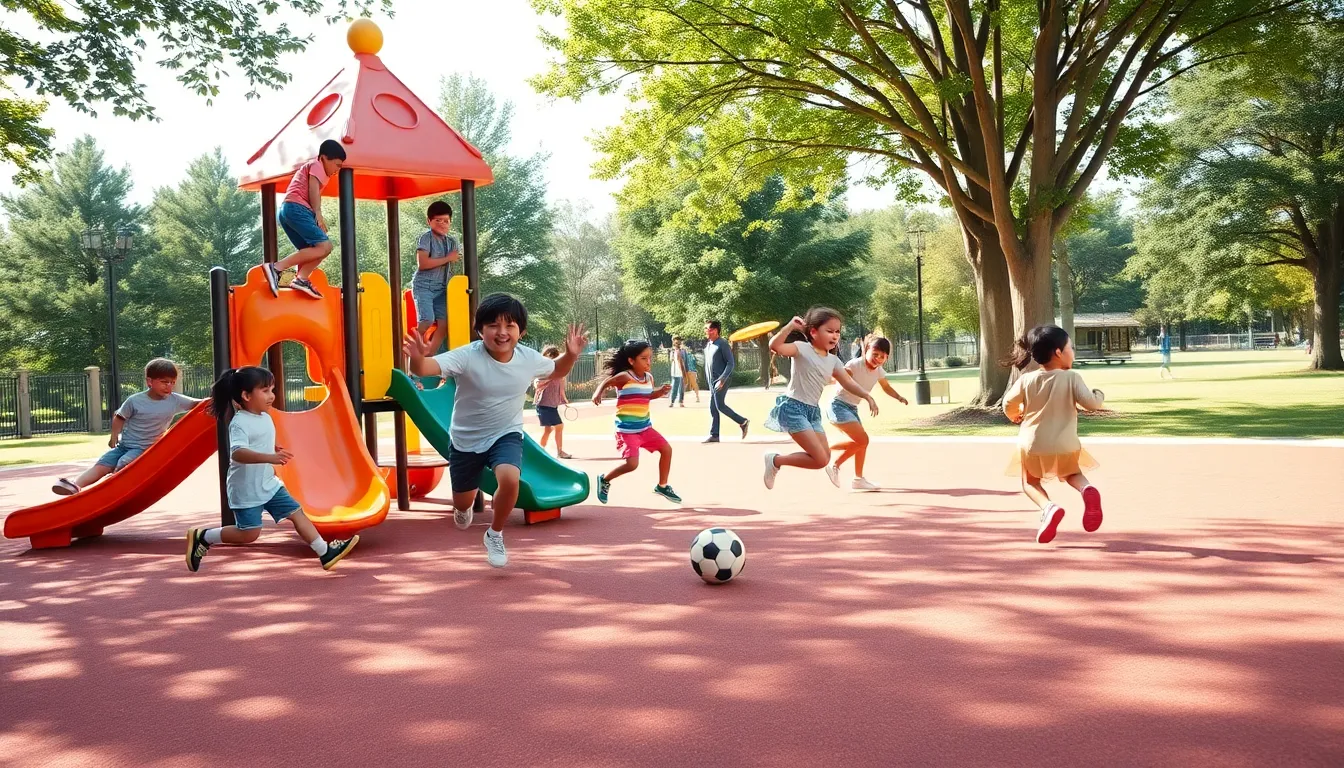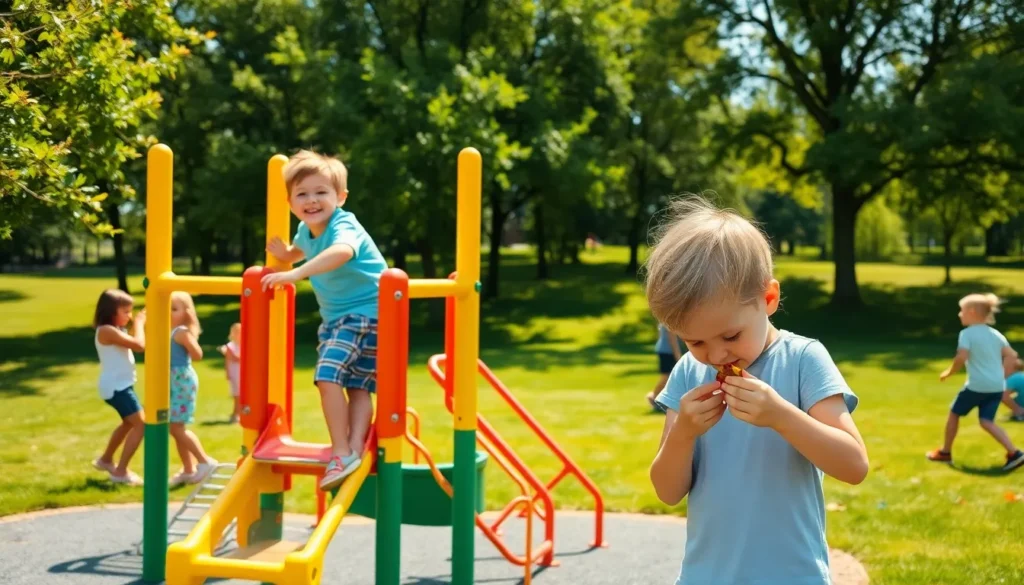When it comes to nurturing young minds and bodies, outdoor play in early childhood isn’t just a bonus, it’s a game changer. Imagine toddlers giggling as they climb, run, and explore grassy fields, basking in the sun while firing up their imaginations. Sounds delightful, right? Well, hold onto your hats because the benefits of outdoor play extend far beyond just fun and games. From boosting physical health to enhancing social skills, getting children outside is like unlocking a treasure chest full of developmental goodies. Let’s immerse and explore how this wondrous world of outdoor activities shapes happy, healthy kids.
Table of Contents
TogglePhysical Health Benefits

Enhancing Motor Skills
Outdoor play is a marvelous arena for children to enhance their motor skills. When kids run, jump, and climb on playground structures, they are not just having a blast: they are also refining their coordination and balance. Think about it: every stride they take or swing they master hones those little muscles. Activities like kicking a ball or throwing a frisbee improve hand-eye coordination and core strength. This natural environment allows children to push their boundaries and discover their strengths.
Combating Childhood Obesity
Let’s face it: the childhood obesity rates in America are staggering. Outdoor play is one of the most effective antidotes. When kids are outside, they are way less likely to lounge around and munch on snacks. Instead, they’re busy engaging in active play, which burns calories and strengthens their bodies. According to the Centers for Disease Control and Prevention, regular physical activity helps reduce the likelihood of unhealthy weight gain. So, encouraging outdoor play is not just a nice idea: it’s a necessity for any parent concerned about their child’s health.
Mental Health Benefits
Boosting Self-Esteem and Confidence
Imagine a child conquering the tallest slide in the park. The sense of achievement is palpable. Outdoor play fosters this type of scenario. When children successfully navigate physical challenges, they boost their self-esteem and confidence. They learn to face fears, tackle new activities, and feel a sense of accomplishment. This confidence spills over into other areas of their lives, impacting how they approach challenges in school and friendships.
Reducing Stress and Anxiety
The great outdoors has an almost magical ability to reduce stress, even for the youngest of us. Nature offers kids a tranquil environment where they can breathe easy and soak in their surroundings. Studies show that children who spend time playing outside experience lower levels of anxiety and stress. The sights and sounds of nature, along with physical activity, work together to create a calming effect, helping children disconnect from the pressures they encounter in everyday life.
Cognitive Benefits
Fostering Creativity and Imagination
Outdoor play is like a blank canvas for young minds. When children engage in free play outside, they have the freedom to dream and create. Whether it’s building a fort from sticks, pretending to be pirates on a treasure hunt, or making up stories inspired by nature, the outdoors stimulates their imaginations like nothing else can. Research reveals that imaginative play enhances cognitive flexibility, allowing children to think outside the box and solve problems creatively.
Improving Attention and Focus
In a world filled with screens, outdoor play is essential for improving attention spans. Nature encourages children to explore, observe, and engage with their environment, which leads to improved focus. Studies suggest that after spending time in nature, kids are more attentive and better able to concentrate on tasks. Plus, outdoor play often involves challenges that require children to plan, think critically, and even strategize. This active engagement plays a crucial role in developing cognitive skills.
Social Benefits
Encouraging Teamwork and Cooperation
Nothing says teamwork quite like a game of tag or a group climb. Outdoor play encourages collaboration, nurturing essential social skills. Children learn to negotiate rules, share spaces, and develop empathy. These interactions create opportunities for conflict resolution, helping children navigate social complexities. They gain insights into teamwork and cooperation, invaluable skills for their future.
Building Social Skills and Friendships
Playgrounds are bustling hubs of friendship formation. As kids interact and play together, they build friendships that can last a lifetime. Outdoor activities provide settings where children can practice communication skills, express emotions, and learn to appreciate diversity. Studies show that children with strong social connections tend to be more resilient, which is crucial for their overall development.
Environmental Awareness
Connecting with Nature
Outdoor play isn’t just about physical activity: it’s also an opportunity for environmental awareness. Children who spend time outside develop a connection with nature that fosters appreciation and respect for the environment. Whether they’re observing insects or collecting leaves, these simple activities build a foundation for a lifelong love of nature.
Understanding Ecosystems and Conservation
When kids engage with their surroundings, they begin to understand the basics of ecosystems and conservation. Observing how animals interact or noticing the changing seasons nurtures curiosity about the natural world. Learning about the environment at a young age leads to more environmentally conscious adults, creating a ripple effect of positive impact for the planet.








